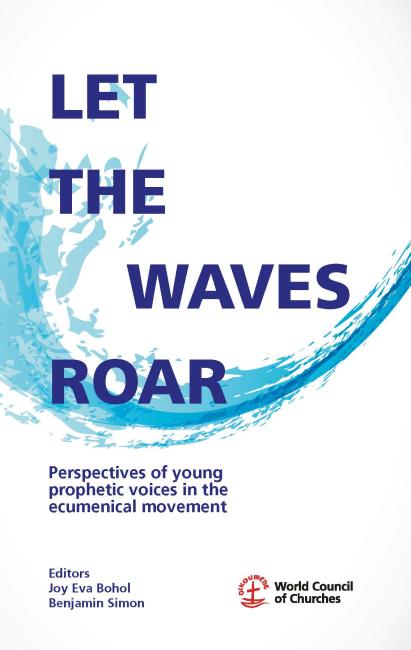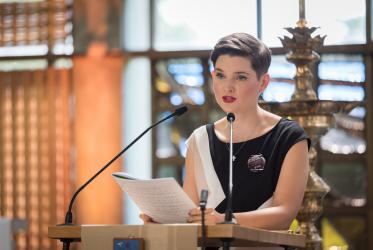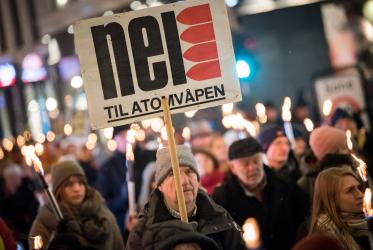Displaying 1 - 20 of 54
11 September 2023
Ecumenical International Youth Day 2023 Toolkit
Young People and Their Voices from the Warzones
26 July 2023
WCC offers input to the UN New Agenda for Peace
13 April 2023
Applications open for upcoming Young Adults Training for Religious Amity
15 September 2022
Let the Waves Roar
Perspectives of Young Prophetic Voices in the Ecumenical Movement
19 December 2021
In Korea, young ‘stewards of hope’ forge ahead together
19 September 2019
A passionate Korean feminist and ecumenist
21 August 2019
Paving the way for ecumenical studies, learning English in Bossey
24 September 2018
Unifying faiths in peace and harmony through dialogue
10 April 2018
Trying to do good for the world
18 December 2017
Peacemaking “a great and compelling life task”
09 December 2017
Prayers for peace - Ecumenical service at Trinity Church, Oslo, Norway
09 December 2017
Trinity Church, Oslo, Norway













